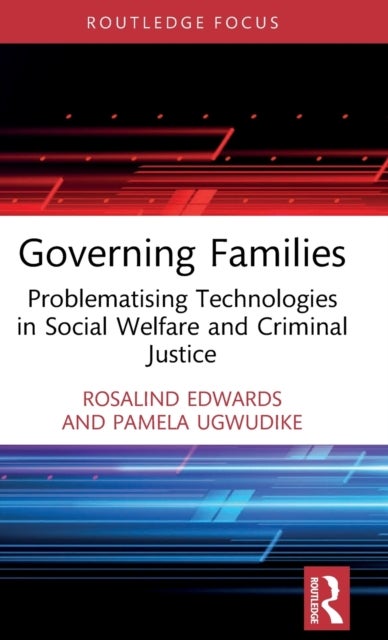
Governing Families av Rosalind (University of Southampton UK) Edwards, Pamela (University of Southampton UK) Ugwudike
619,-
This book provides a focused discussion of how families are governed through technologies. It shows how states attempt to influence, shape and govern families as both the source of and solution to a range of social problems including crime. <P>The book critically reviews family governance in contemporary neo-liberal society, notably through technologies of self-responsibilisation, biologisation, and artificial intelligence. The book draws attention to the poor working class and racialised families that often are marked out and evaluated as culpable, dysfunctional, and a threat to economic and social order, obscuring the structural inequalities that underpin family lives and discriminations that are built into the tools that identify and govern families.</P><P>Filling a gap where disciplinary perspectives cross-cut, this book brings together sociological and criminological perspectives to provide a unique cross-disciplinary approach to the topic. It will be of interest to researche








